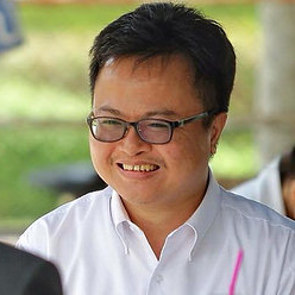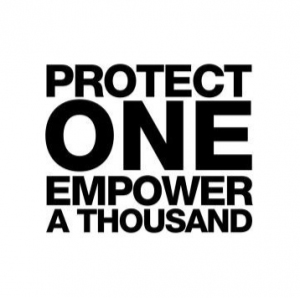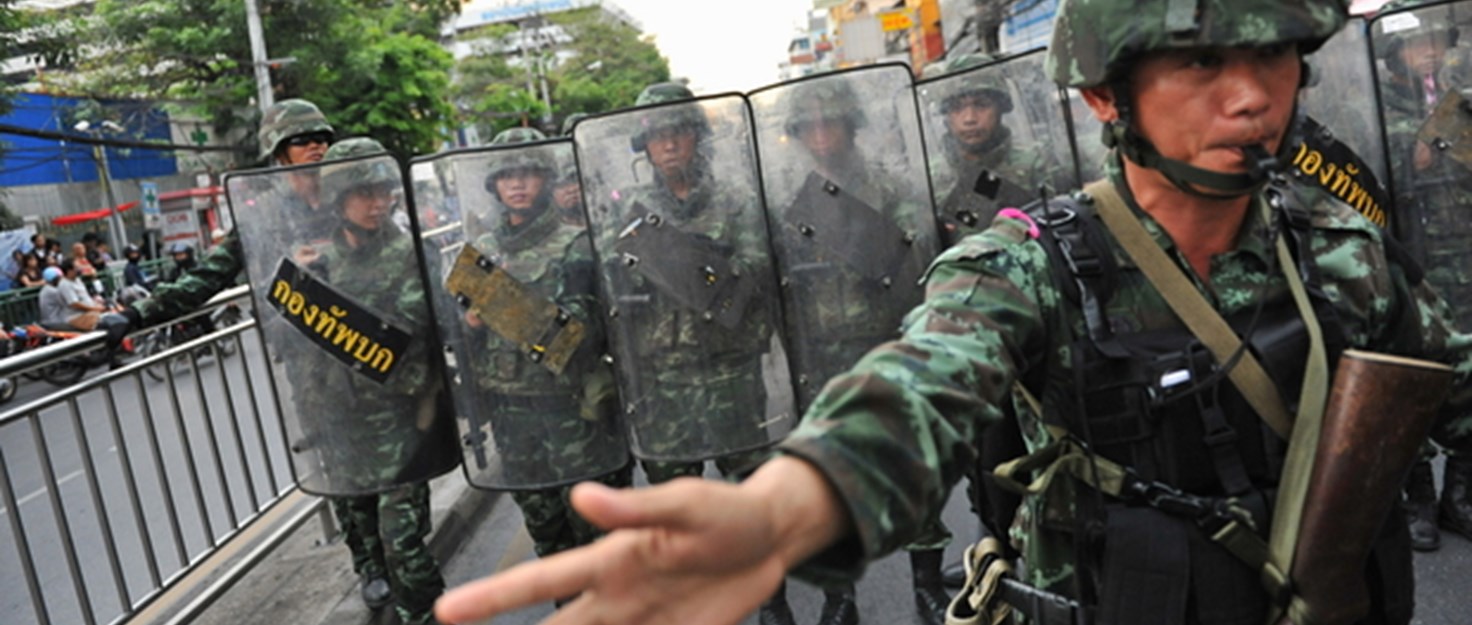
The annual Front Line Defenders Award for Human Rights Defenders at Risk was established in 2005 to honour the work of HRDs who are courageously making outstanding contributions to the promotion and protection of the human rights of others, often at great personal risk to themselves.
Arnon Nampa is an imprisoned human rights lawyer and activist, highly regarded for his deep commitment to social justice and pro-democracy work in Thailand.
In spite of the political persecution Arnon faces; the potential of a lifetime behind bars and proposed penalties of disbarment from the profession to which he has dedicated his life, he has never wavered in offering himself in service of others and his country. With steadfast courage and resolve, for the last two decades Arnon has played the roles of an activist, a storyteller, a justice-oriented lawyer, and a human rights defender.
Arnon grew up in a rural province of Thailand, surrounded by rice fields. He studied at a provincial school where he was exposed to children from different walks of life and first cultivated his leadership skills through school and social activities.
Arnon’s commitment to political activism and social justice started early. In high school, he witnessed his grandparents fighting against government-constructed concrete irrigation canals on land his family needed to cultivate, stirring something in him as a teenager. During this time, he keenly studied the history of activists in Thailand and their various movements, including through poetry and protest songs, and remains an avid poetry and creative enthusiast, which is seen throughout his journey as a human rights defender.
His lived experiences, combined with his intellectual interests, affirmed Arnon in his belief that he too must stand firm against injustice. This insight led him to pursue a law degree, receiving his legal licence in 2007. Throughout the changing seasons of Thailand’s political regimes and leadership, his determination to use his law degree to redress injustice is evident throughout his career.
His inspiring legal philosophy is characterised by a nuanced understanding of the law’s role in society. To Arnon, the law must not be a set of abstract rules; rather, it should give life to the liberties enshrined in domestic and international legislation.
A decisive turning point in his career occurred in 2009 when hebegan taking on cases under Section 112 of the Thai CriminalCode, the draconian lèse majesté provision that punishes alleged violators with three to 15 years in prison. Successive governments have abused and weaponised this law. In 2009, under the government of Abhisit Vejjajiva, there was a massive increase in its abuse.
While taking on cases of people affected by this atrocious law, Arnon and other lawyers formed the Human Rights Lawyers Association of Thailand (HRLA) which boldly and publicly denounced the 2006 military coup and called for the repealof the lèse majesté and computer crimes laws (digital, cyberand internet laws).
In the aftermath of another military coup in 2014, Arnon emerged as a leading and unwavering voice of dissent against the military regime. It was then that he co-founded Thai Lawyers for Human Rights (TLHR), an organisation that has since become a leading force in meticulously documenting widespread human rights violations and providing essential legal representation to individuals targeted by the military junta and subsequent governments.
Arnon’s courageous and unwavering advocacy for human rights, democracy, and the rule of law comes at an immense and devastating personal cost. On 7 August 2020, Arnon was arrested from his home in Bangkok, after he took part in a peaceful pro-democracy gathering on 18 July 2020. He spent no fewer than 300 days in prison before the court found him guilty of lèse majesté in the first of 14 such cases and sentenced him to four years in prison on 26 September 2023. Imprisoned since then, Arnon has been subjected to relentless judicial harassment and persecution, facing a barrage of politically motivated charges designed to silence his voice and suppress his activism.
At present, he has been convicted in seven Section 112 cases, resulting in a cumulative and shocking prison sentence of 22 years, 1 month, and 20 days. He continues to face prosecution in several ongoing cases, all of which stem solely from his public speeches at peaceful demonstrations. Arnon was convicted of contempt of court in a secret verdict hearing, a process that denied him basic due process rights, after he protested for his fundamental fair trial rights by removing his shirt when the judge refused to issue subpoenas for documents crucial to his defence.
These are only the most concrete challenges. Arnon faces separation from family and friends, tough conditions in prison, and no certainty on whether, or when, he will be free again. What is clear from Arnon’s journey as a human rights defenderis that no matter the changing tides of his country, his resolve and purpose remain the same: to protect the human rights of those around him. His morale remains high, and his resolve keeps others motivated to continue his powerful work.
Arnon volunteers with the Thai Lawyers for Human Rights (TLHR). TLHR was established in 2014 to provide legal assistance to alleged violators of lèse-majesté and human rights defenders targeted by the authorities following the military coup of 22 May 2014. TLHR received a human rights award by the French Embassy in Bangkok in December 2014.


